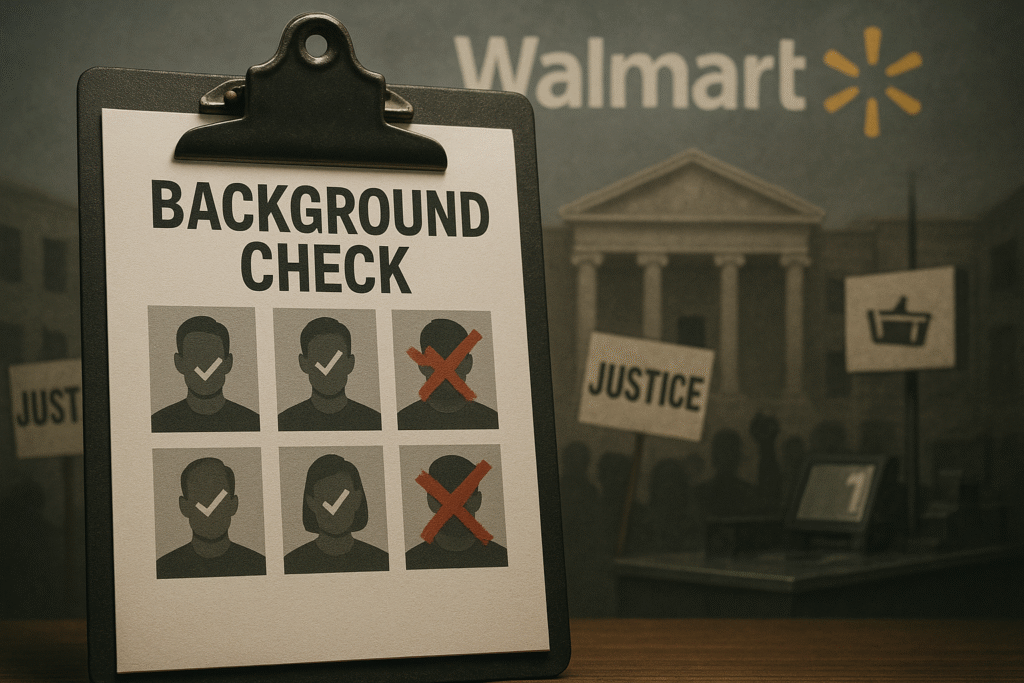A group of former workers in Chicago are suing Walmart, saying they were unfairly let go when the company took over operations from a subcontractor.
The reason for the exodus? Background checks turned up criminal records.
So now there’s a lawsuit, protests, and national headlines, because Walmart did what pretty much any employer would do: check who they’re hiring.
BREAKING: Black workers sue Walmart for their employee background check policy pic.twitter.com/2dkdcqLoso
— End Wokeness (@EndWokeness) June 27, 2025
Here’s the thing: criminal records aren’t secrets. They’re public.
You can’t claim Walmart was snooping when all they did was look at information that’s legally available. We’re not talking about childhood nicknames or how often someone microwaves fish in the break room.
And reconsidering hiring after a background check isn’t the same as doing so based on something like race or disability.
Criminal behavior isn’t a skin color; it’s a choice. You have no say in your race. A criminal record is something you got by doing something. That difference matters.
If you’re hiring someone to handle cash or stock shelves late at night, you probably want to know if they’ve been caught stealing before. That’s not mean, that’s just being a halfway decent manager.
This lawsuit ties into the “Ban the Box” movement, which pushes to take criminal history questions off job applications. The idea is to give everyone a fairer shot.
Sounds nice. In practice? Not so much.
Turns out, when you stop asking, some employers just start guessing.
Studies show they sometimes assume the worst based on age or race. So instead of helping people, it ends up hurting the same folks the rule was supposed to protect.
And let’s not forget the DEI push. When done right, it means everyone gets a chance. When it goes off the rails, it means hiring becomes more about checking boxes than checking qualifications.
This Walmart case sits right in the middle of all that tension.
When things go wrong, guess who gets sued anyway? Not the activists. Not the lawmakers. The company.
And guess who pays for it? You and me, at the checkout line.
If lawsuits like this pile up, they’ll pass the cost along. That means higher prices, tighter margins, and fewer jobs. Bad policy has a way of finding its way into your grocery bill.
So yes, let’s support second chances. Let’s help people rebuild.
But let’s also be honest: past choices matter, and business owners should have the right to hire (or not hire) based on public information.
This isn’t about being cold-hearted. It’s about being clear-eyed.
This article was written with the assistance of AI. Please verify information and consult additional sources as needed.




